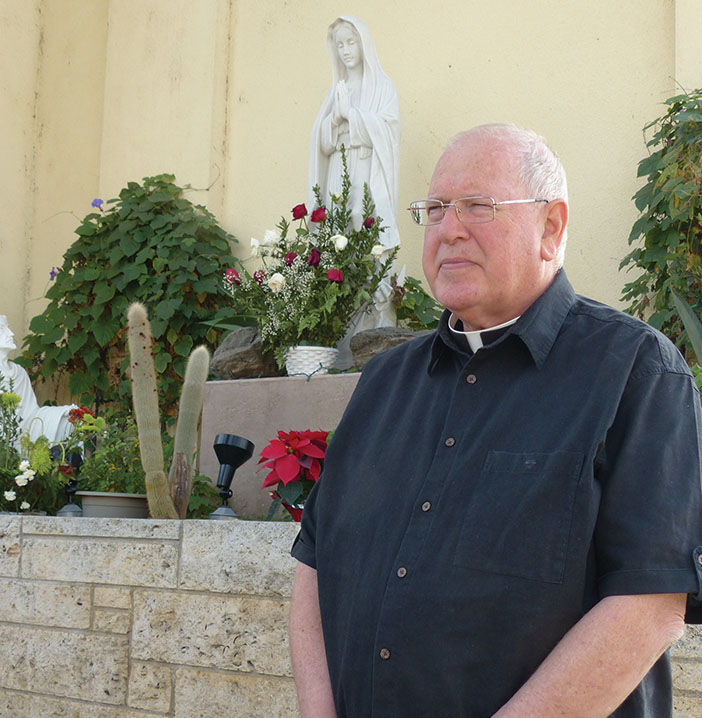After a seven—month investigation by a federal grand jury, Exide Technologies agreed on March 11 to not only shut down its 15-acre battery recycling plant in Vernon, but to demolish it and clean up the site.
The deal reached by the U.S. attorney’s office sets aside millions of dollars to close down the plant and also to remove lead-contaminated soil from nearby homes. By doing so, Exide avoided criminal prosecution on multiple charges.
“Oh, what a great victory, what a great victory,” Msgr. John Moretta told The Tidings. The 30-year-plus pastor of the Church of the Resurrection in Boyle Heights was one of the religious and community leaders who spearheaded the three-year struggle to close down the battery recycling plant.
Over the years, Exide was sanctioned and fined for emitting toxic substances into the air, ground, water supply and even highways.
Exide Technologies bought the lead recycling battery plant in 2000. Three years later, the Georgia-based company was fined $40,000 by California’s Department of Toxic Substances Control, DTSC, for improper storage of used lead-acid batteries.
The violations and fines from DTSC and the state’s South Coast Air Quality Management District (AQMD) continued. Over the years, the plant has racked up more than 30 violations while operating on a temporary permit from the Department of Toxic Substances Control.
In 2007, a study found that Exide had deposited 1,500 pounds of lead into the Los Angeles River watershed. Two years later, lead sludge from the battery recycler was found in storm water retention basins.
The facility was hit with a plethora of negative findings and charges in 2013. A health-risk assessment made by Exide itself found the plant posed a cancer risk to its workers.
Moreover, California officials suspended operations because of emissions of arsenic that posed a health risk to 110,000 residents in nearby communities. Nevertheless, the facility was soon able to reopen when Exide officials promised to monitor and fix the air quality.
In early March 2014, lead was found in the soil around Exide, including at the Volunteers of America Salazar Park Head Start pre-school. The battery recycler shut down, again promising to fix this problem. Community activists and residents feared that Exide, involved in a bankruptcy reorganization, was within weeks of resuming operations.
The Department of Toxic Substances Control is the state agency overseeing the plant’s cleanup, which is expected to take years. DTSC is the same organization that has allowed the troubled facility to remain mostly open since 2000.
An agreement was brokered with Exide Technologies and state regulators last fall, setting aside $38.6 million for closing and cleaning the Vernon plant as well as $9 million to rid lead-tainted soil from nearby homes.
“We went to the U.S. government because of the past history of how difficult it was for the DTSC to make decisions, especially about Exide,” Msgr. Moretta said. “It seemed like every time they would find a fault, they would always make an exemption or exception. Or they would say they needed another hearing or would give Exide a reprieve. Always something would come up.
“In the meantime, we had the intervention of the Feds. So it was a good stimulus. And I’m very grateful because the Feds did a fantastic job. It was a very, very important decision from the federal government.
“I’m very happy with the results,” the pastor said. “Justice is sometimes slow, but it works.”

